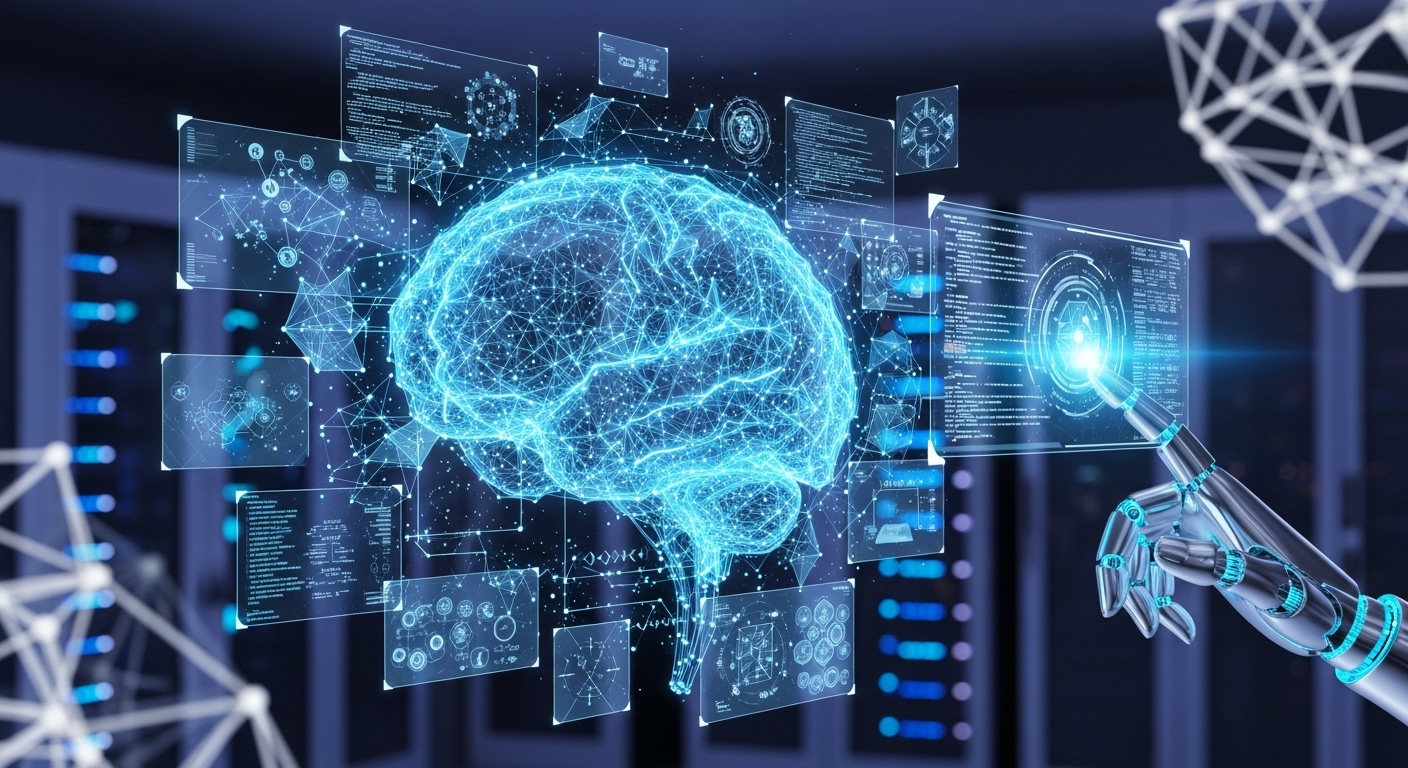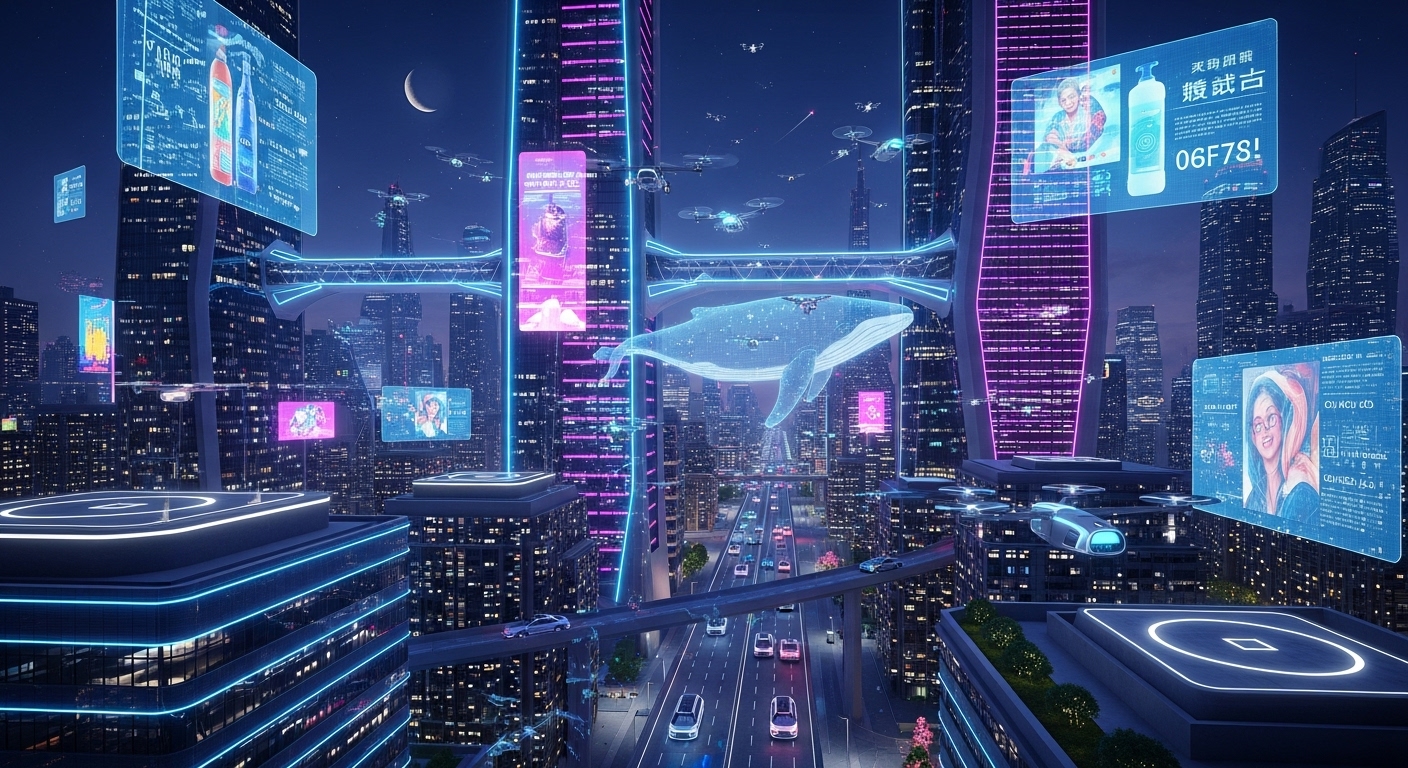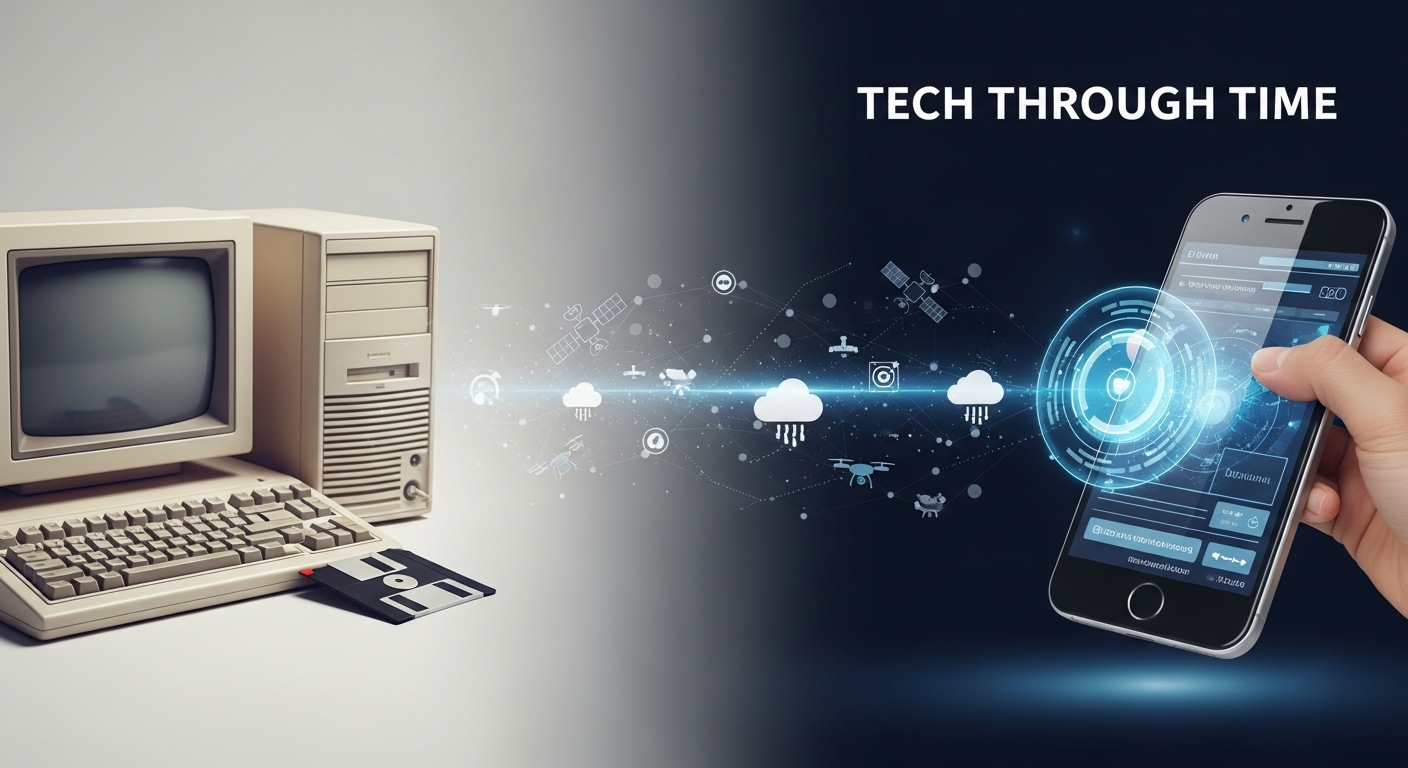Technology has become the cornerstone of modern society, influencing every aspect of human life. From the way we communicate and work to how we entertain ourselves and manage health, technology continuously shapes our experiences. Over the past few decades, technological advancements have accelerated at an unprecedented rate, transforming industries, economies, and cultures worldwide. The integration of artificial intelligence, automation, mobile computing, and digital networks has created a world that is more interconnected, efficient, and innovative than ever before.
This blog explores the evolution of technology, its impact on different sectors, key innovations driving progress, challenges associated with rapid development, and the future of technological growth.
The Evolution of Technology
Human civilization has progressed in tandem with technology. Early inventions, such as tools, fire, and the wheel, were critical in enabling humans to adapt to their environment. These early technological innovations laid the foundation for complex societies, agriculture, and trade.
The Industrial Revolution marked a transformative period in human history. Steam engines, mechanized production, and mass transportation reshaped industries and urban life. Technology became a primary driver of economic growth, enabling higher productivity and fostering new forms of social organization.
The 20th century brought further transformation. The advent of electricity, telecommunication, automobiles, and airplanes revolutionized human mobility and communication. The rise of computers and the internet in the late 20th century opened new horizons for information exchange, business operations, and global connectivity.
Today, technological evolution continues at a rapid pace. Innovations in artificial intelligence, robotics, biotechnology, and quantum computing are redefining possibilities and pushing the boundaries of human potential.
Key Technological Advancements
Artificial Intelligence and Machine Learning
Artificial intelligence (AI) is revolutionizing how machines perform tasks that traditionally required human intelligence. AI systems can process vast amounts of data, recognize patterns, and make decisions faster than humans. Machine learning, a subset of AI, enables computers to learn from experience and improve performance over time.
Applications of AI are widespread. In healthcare, AI assists in diagnosing diseases, predicting patient outcomes, and developing personalized treatment plans. In business, AI automates processes, enhances customer service, and drives data-driven decision-making. Self-driving vehicles, smart home devices, and virtual assistants are everyday examples of AI integration.
The Internet and Connectivity
The internet has fundamentally changed how humans access information, communicate, and conduct commerce. High-speed connectivity allows individuals to share ideas globally, collaborate remotely, and access knowledge instantaneously. Broadband and wireless technologies, including 5G, have enhanced online experiences, enabling faster downloads, smoother streaming, and real-time communication.
The internet has also transformed commerce and finance. E-commerce platforms allow businesses to reach global audiences, while digital payment systems simplify transactions. Social media platforms connect billions of people, creating communities that transcend geographic boundaries.
Mobile Technology
Mobile devices have become an essential part of modern life. Smartphones and tablets combine computing power, internet access, and multimedia capabilities in portable form. Mobile apps provide tools for work, entertainment, education, health management, and social interaction.
The convergence of mobile technology and cloud computing has enabled on-the-go productivity. Professionals can collaborate in real time, access documents remotely, and conduct business from virtually anywhere. Mobile technology has also democratized access to information, education, and services, empowering people across the globe.
Robotics and Automation
Robotics and automation have transformed industries by improving efficiency, accuracy, and safety. Industrial robots handle repetitive tasks in manufacturing, while service robots assist in healthcare, logistics, and customer service. Automation reduces human error, lowers costs, and increases productivity.
Advancements in AI and machine learning have enhanced robotic capabilities, enabling machines to adapt to dynamic environments and perform complex tasks. Autonomous drones, robotic surgical systems, and warehouse automation are prime examples of how robotics is revolutionizing operations across sectors.
Virtual Reality and Augmented Reality
Virtual reality (VR) and augmented reality (AR) offer immersive experiences by blending the physical and digital worlds. VR creates fully digital environments that users can explore, while AR overlays digital information onto the real world.
These technologies have applications in gaming, education, healthcare, architecture, and retail. VR enables realistic simulations for training and therapy, while AR enhances learning experiences by providing interactive visualizations. In entertainment, VR and AR deliver engaging experiences that redefine how audiences consume content.
Blockchain and Decentralized Technologies
Blockchain technology provides secure, transparent, and decentralized methods for recording and verifying transactions. While cryptocurrencies like Bitcoin are the most well-known applications, blockchain also has broader uses in supply chain management, healthcare, digital identity, and voting systems.
Decentralized technologies increase transparency, reduce the risk of fraud, and enable peer-to-peer interactions without intermediaries. Businesses and governments are exploring blockchain solutions to enhance efficiency, trust, and accountability in various processes.
Biotechnology and Health Technology
Technological advancements in healthcare have dramatically improved patient care, treatment efficiency, and disease prevention. Telemedicine allows remote consultations, while wearable devices monitor vital signs and track health metrics in real time.
Innovations like CRISPR gene editing and personalized medicine enable tailored treatments based on individual genetic profiles. AI-driven diagnostics and robotic-assisted surgery improve accuracy, reduce risks, and accelerate recovery times. Technology in healthcare is making medical services more accessible, effective, and patient-centered.
Technology in Business and Industry
Technology has reshaped the global business landscape. Companies leverage automation, AI, big data analytics, and cloud computing to optimize operations, enhance customer experiences, and create innovative products.
E-commerce has transformed retail, allowing businesses to sell products globally without physical stores. Supply chain management uses IoT devices and data analytics for real-time tracking and operational efficiency. Financial technology, or fintech, leverages mobile applications, AI, and blockchain to simplify banking, investments, and payment processing.
Businesses increasingly rely on digital marketing, data-driven insights, and cloud infrastructure to remain competitive. Technology enables agile decision-making, operational scalability, and the rapid introduction of new products and services.
Technology in Education
The education sector has been profoundly impacted by technological advancements. Online learning platforms, virtual classrooms, and educational apps make knowledge accessible to students worldwide. Learning can now occur anytime, anywhere, and at a personalized pace.
Virtual simulations and interactive tools enhance traditional teaching methods, making learning engaging and experiential. AI-driven platforms provide personalized learning paths, assess student progress, and identify areas needing improvement. Technology empowers educators to deliver content effectively and fosters collaboration and creativity among students.
Technology in Healthcare
Healthcare has been revolutionized by technology in diagnostics, treatment, and patient care. AI and data analytics allow for early detection of diseases and the development of targeted treatment plans. Robotic-assisted surgeries improve precision and reduce recovery times.
Telemedicine expands access to healthcare, particularly in remote or underserved regions. Wearable devices and mobile health apps monitor patients continuously, promoting preventive care and early intervention. Biotechnology, gene editing, and personalized medicine are redefining how healthcare is delivered and how diseases are treated.
Technology in Entertainment
The entertainment industry has been transformed by digital technology. Streaming services provide instant access to movies, music, and games, while social media platforms enable global interaction and fan engagement. Gaming has emerged as a major industry, with competitive esports and immersive experiences attracting millions of players and spectators.
Virtual and augmented reality technologies enhance entertainment experiences, offering interactive and immersive content. AI assists in content creation, recommendation algorithms, and audience analysis, allowing personalized and engaging experiences. Technology has redefined how entertainment is produced, distributed, and consumed.
Emerging Technology Trends
Artificial Intelligence and Deep Learning
AI continues to evolve, enabling smarter automation, predictive analytics, and enhanced decision-making across industries. Deep learning models improve machine understanding of complex data, powering innovations in healthcare, finance, transportation, and more.
Internet of Things (IoT)
IoT connects devices, sensors, and systems to the internet, creating intelligent networks. Smart homes, smart cities, and industrial IoT applications enhance efficiency, convenience, and sustainability.
Quantum Computing
Quantum computing has the potential to solve problems that classical computers cannot handle efficiently. It promises breakthroughs in cryptography, complex simulations, drug discovery, and material science.
5G Connectivity
5G networks provide faster, low-latency, and reliable connectivity. This facilitates innovations in IoT, autonomous vehicles, telemedicine, immersive media, and smart infrastructure.
Sustainable and Green Technologies
Advances in clean energy, battery storage, and sustainable manufacturing address environmental challenges. Solar energy, wind power, and energy-efficient systems contribute to a greener and more sustainable future.
Ethical and Societal Challenges
Rapid technological growth presents ethical and societal challenges. Privacy concerns, data security, digital addiction, and misinformation are critical issues. Automation and AI raise questions about job displacement and economic inequality. Responsible innovation, regulation, and ethical guidelines are essential to ensure that technology benefits society equitably.
The digital divide remains a pressing concern. Unequal access to technology creates disparities in education, healthcare, and economic opportunities. Bridging this gap is crucial for inclusive growth and global development.
The Future of Technology
The future of technology holds immense promise. AI, quantum computing, blockchain, robotics, and biotechnology will continue to redefine industries and human experiences. Smart cities, autonomous transportation, personalized medicine, and immersive entertainment will become more prevalent.
Sustainability will be central to technological development. Innovations will focus on energy efficiency, resource optimization, and minimizing environmental impact. Collaboration between governments, businesses, and communities will drive responsible and impactful innovation.
Digital literacy, education, and ethical awareness will be vital as humans navigate increasingly complex technological ecosystems. The integration of human ingenuity and machine intelligence promises a future of unprecedented possibilities.
Conclusion
Technology is the driving force behind modern civilization, shaping the way we live, work, communicate, and entertain ourselves. From early innovations to cutting-edge developments, technology continues to expand human potential and redefine societal norms.
Its impact spans business, healthcare, education, entertainment, and beyond. Emerging technologies like AI, quantum computing, blockchain, and VR/AR promise transformative changes in the years ahead. Addressing ethical, social, and environmental challenges will be essential to ensure that technological growth benefits all of humanity.
Technology is not merely a tool; it is a fundamental force that powers progress, innovation, and human development. As society continues to embrace and adapt to technological advancements, the possibilities for shaping a better, more connected, and sustainable world are limitless.



